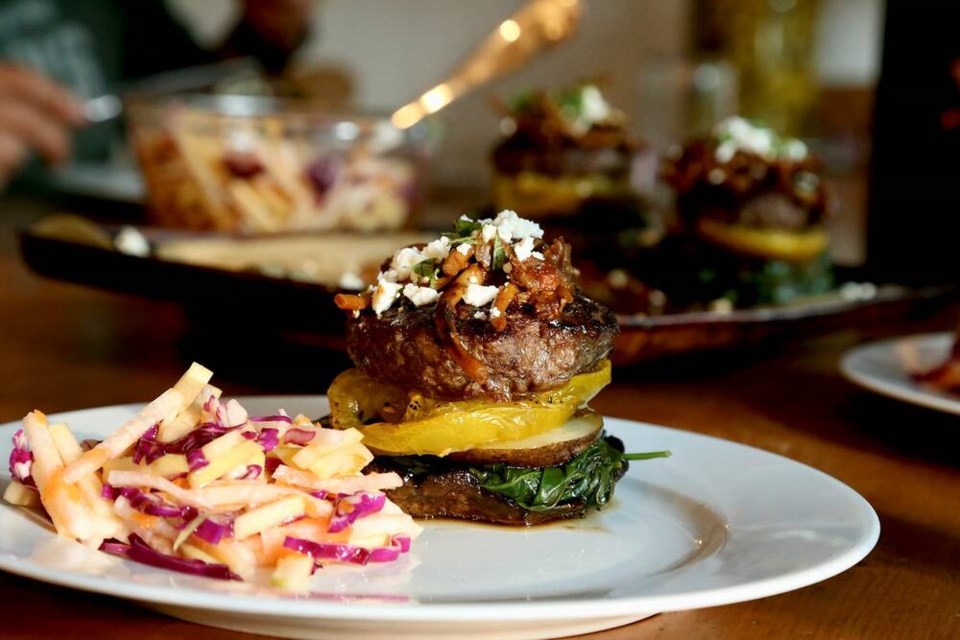The deeper I dive into permaculture, the deeper my conviction that the criteria for restoring planetary and human health are very simple, based primarily on nature’s logic.
It was first our ignorance – innocent arguably, so therefore forgivable – and then our arrogance, not so forgivable, that propelled us into climate chaos. Our humanity surely will pull us out.
Thankfully, enlightened humans across the country and the world are tuning out the noise, and working head down to restore the natural balance and lead by example.
Recently, in a parking lot behind a gas station in Vernon, I had the privilege of meeting regenerative ranchers Erika and Christoph Weder, whose Venator Ranch in northeastern B.C.’s Peace River Regional District produces 100-per-cent grass fed and finished bison and beef in a functioning, multi-species ecosystem, according to natural laws.
Good fortune placed us in Vernon on the day that the Weders’ freezer truck was passing through – stop number nine of their week-long round trip to Vancouver Island, rendezvousing with loyal customers in some 35 freeway-side parking lots along the route.
“Grass-fattened” best describes the animals whose genetics allow them to build beneficial fat on forage grasses, as nature intended, not on grain. Christoph refers to their ruminants as “four wheel drive, solar-powered, forage bio-digesters,” which is an apt description of the super, natural process that converts solar energy into phyto-enriched macro and micronutrients.
Multiple studies have concluded that bison, beef and other ruminants that eat natural grasses and forage, live in regenerative systems, and are dispatched humanely and respectfully, produce nutrient-dense meat that is well-suited for moderate human consumption. The science is complicated, but the concept is simple: don’t mess with nature because she knows best.
In an elegant process referred to as symbiotic-phytoadaptation – coined originally by medical and functional medicine doctor and author Mark Hyman – humans use chemicals found in plants and the animals that eat them, to beneficially influence our biological systems in a way that supports our health span.
Altering the natural order upsets the balance and can lead to chronic disease. Each culinary decision we make, and each bite of food we take, programs our biology and our planet for health or disease.
In our home, we have removed sugar, refined carbohydrates and processed foods from the menu, so when my husband requested bison burgers for dinner this week, a bun conundrum ensued.
Portobello mushrooms caps, drizzled with olive oil and sea salt, and then roasted in the oven until soft and dewy, did the trick. I chopped the stems with some garlic and shallot and sauteed those before adding together with home-made roast vegetable ketchup, salt and pepper, to the raw bison mince.
We grilled the 115-gram patties on high heat only briefly, before finishing in a 180 C oven. Bison meat is incredibly juicy, but naturally lean, so you don’t want to overcook it. On top of our portobello buns, we layered just-picked braised spinach, leek and kale, sliced leftover baked potato, grilled heirloom tomato, bison patties, dry-sautéed chestnut mushrooms, crumbled goat cheese, and chopped fresh herbs.
A simple side slaw of red cabbage, jícama and baby carrot, completed the delicious rainbow of phyto-nutrients on the plate. Slightly heavier, admittedly, than the minimum 75-per-cent by volume plant ratio that I aim for.
Because the Weders deliver direct to consumer, their prices are competitive. We paid less for regenerative Weder bison, which is more nutrient dense and contains more iron than beef, than we’ve paid for conventional, grain-finished beef locally. Learn more about Weder bison on their website.
Laura Marie Neubert is a West Vancouver-based urban permaculture designer. Follow her on Instagram @upfrontandbeautiful, learn more about permaculture by visiting her Upfront & Beautiful website or email your questions to her here.
For a taste of permaculture, watch the video below:




